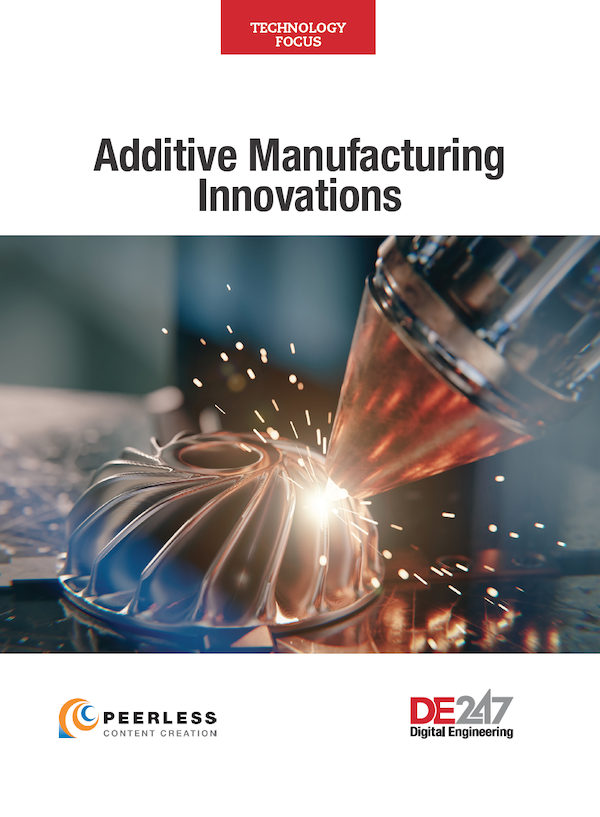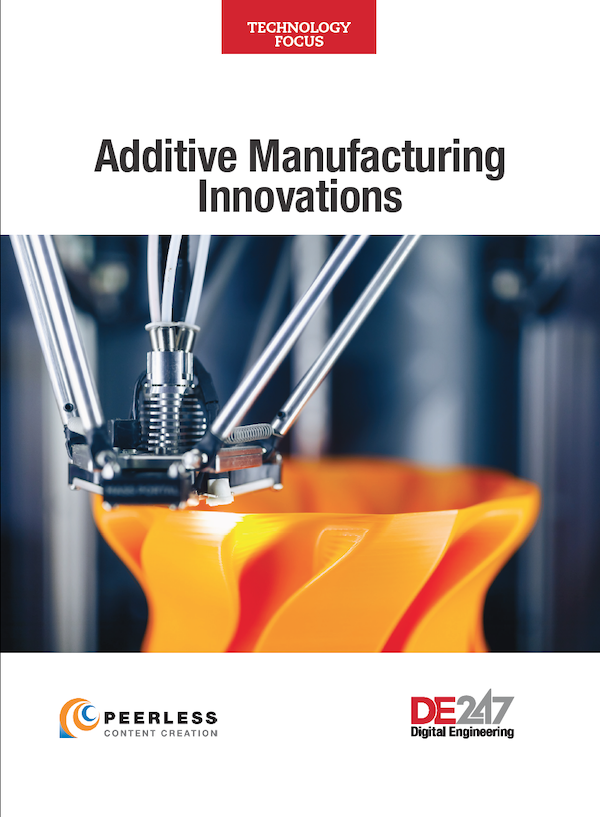America Makes Announces Awardees of Directed Project Opportunities on Acceleration of Large-Scale AM
Projects to develop an open source, multi-laser manufacturing research platform and more
Latest News
December 19, 2018
America Makes announced several awardees of directed project opportunities on the acceleration of large-scale additive manufacturing (ALSAM). The project opportunities are funded by the Air Force Research Laboratory (AFRL), Materials and Manufacturing Directorate, Manufacturing and Industrial Base Technology Division.
The first awardee is GE Global Research, in conjunction with the Applied Research Laboratory (ARL) at Pennsylvania State University (Penn State), and GE Additive as the awardee of a directed project opportunity on the acceleration of large-scale additive manufacturing (ALSAM). Driven by the National Center for Defense Manufacturing and Machining (NCDMM), America Makes awarded $2.1M in AFRL funding with at least $525K in matching funds from the awarded project team for total funding worth approximately $2.6M.
The opportunity is subject to the finalization of all contractual details and requirements.
“We believe that GE Global Research, ARL at Penn State and GE Additive outlined the best approach to developing an open source, multi-laser manufacturing machine and research platform,” says Rob Gorham, America Makes executive director.
The objective of the ALSAM Directed Project Opportunity is to overcome known and distinct shortcomings of Selective Laser Melting (SLM) AM that are limiting the wider adoption of the technology for production. The focus of the ALSAM Directed Project is of interest to AFRL as the value of SLM technology is important for producing defense components with complex shapes made from a multitude of alloys, featuring high mechanical properties and fine microstructures, according to America Makes. Yet, while single-laser SLM machines are entering the market with increased build volumes, a strategy for developing multi-laser solutions is needed.
Through the ALSAM Directed Project, AFRL specifically seeks an open source, multi-laser manufacturing research platform to assist in the identification of best practices and quantify part production efficiency that can be realized with multi-laser SLM machines. AFRL requires a flexible platform to conduct manufacturing relevant, controlled experiments into multi- or many laser approaches, offering possible quality improvements for challenging alloys through tailored thermal management approaches, according to America Makes.
GE Global Research and its team will integrate the results of three previous America Makes Programs into a commercially-available Powder Bed Fusion Additive Manufacturing (PBFAM) machine and deliver the machine to America Makes. The team will work in coordination with a parallel DoD-funded project at Lawrence Livermore National Laboratory (LLNL), Optimized Multi-Beam Approach for Powder Bed Fusion, for critical reviews of the machine and experimentation. By building upon the work of these previous America Makes Programs and parallel LLNL DoD project, GE Global Research anticipates that the key deliverable of the Directed Project Opportunity, the ALSAM Platform, will lead to production efficiency and scalability for the identification of best practices for scan speed, hatch spacing, power, and stitching, among other process parameters. The ALSAM Platform will also be a flexible resource in that it will be controlled with open-source software for both scanpath generation and machine control.
Additionally, the deployment of an ALSAM Platform will demonstrate the technology in a production-representative environment, advancing the Manufacturing Readiness Level (MRL) from a MRL6 of the open system to MRL7. The availability of the open machine will enable subsequent research programs aimed at achieving MRL8 by identifying specific process parameters, multi-laser strategies, feedback strategies and sensors to be validated prior to moving to a pilot line.
“With the award of the America Makes ALSAM Directed Project to GE Global Research and its partners, as an industry, we are much closer toward having the mainstream ability to produce large scale components through multi-laser interaction,” says John Wilczynski, America Makes technology director. “As a result, we will be able to meet the needs of not only the U.S. Air Force and other military branches, but also the energy and automotive industries as well.”
The other two awardees are Arizona State University and ASTM International Additive Manufacturing Center of Excellence (AM CoE). Again driven by the NCDMM, America Makes and AFRL awarded $1.6M to fund two awards with at least $800K in matching funds from the awarded project teams for total funding worth about $2.4M.
The focus of the Advancing Post-Processing Techniques Directed Project is again on expanding the use of SLM for critical parts. Through the AAPT Directed Project, AFRL specifically seeks to address two main issues. First, quantify the mechanical performance debit of using as built SLM surfaces to fabricate high-temperature nickel super alloy canonical features, such as thin walls and narrow flow channels. Second, quantify the effectiveness of Hot Isostatic Pressing (HIP) when producing high-temperature nickel super alloy canonical features, such as thin walls and narrow flow channels.
The opportunities, again, are subject to the finalization of all contractual details and requirements.
Awardee #1: Arizona State University
Led by Arizona State University, in conjunction with Quintus Technologies; Phoenix Heat Treating, Inc.; and Phoenix Analysis & Design Technologies, Inc., this project team seeks to gain a better understanding of how mechanical properties, such as stiffness, strength and fatigue life for as-built structures (without machining), change as a function of size in metal AM. Additionally, the project team seeks to explore and pursue the fundamental reasons for how these findings change with respect to post-processing steps, such as HIP. In doing so, the project team anticipates being able to identify the relationships among process, specimen size, and post-processing to enable improved certification of AM processes and materials.
Awardee #2: ASTM International Additive Manufacturing Center of Excellence (AM CoE)
Led by the ASTM AM CoE, a collaborative, which includes ASTM International, Auburn University, EWI, the National Aeronautics and Space Administration (NASA), Wichita State University – National Institute for Aviation Research (NIAR), in conjunction with Quintus Technologies, Carpenter Technologies Corporation, Aerojet Rocketdyne, Rolls Royce Corporation, Honeywell Aerospace, GE Aviation, and Raytheon, the project team seeks to determine the mechanical performance debit of using as-built AM components, understand how this changes with application of HIP, test the values by burst testing thin wall components with narrow flow channels, and publish standards around these results in order to close industry known gaps.
“America Makes and AFRL are pleased to announce Arizona State University and ASTM International AM CoE as the AAPT Directed Project Opportunity awardees,” says Gorham. “These project teams have outlined interesting approaches to better understanding mechanical and material properties during heat treatments. As a result, we anticipate the projects will yield important gains in process control, certified processes, and the qualification of materials and parts, which will all be instrumental in reducing post-processing costs—one of the biggest barriers to the wider adoption of AM technologies.”
The anticipated start date of all the projects is January 2019.
Sources: Press materials received from the company.
More Info
Subscribe to our FREE magazine, FREE email newsletters or both!
Latest News
About the Author
DE’s editors contribute news and new product announcements to Digital Engineering.
Press releases may be sent to them via [email protected].






